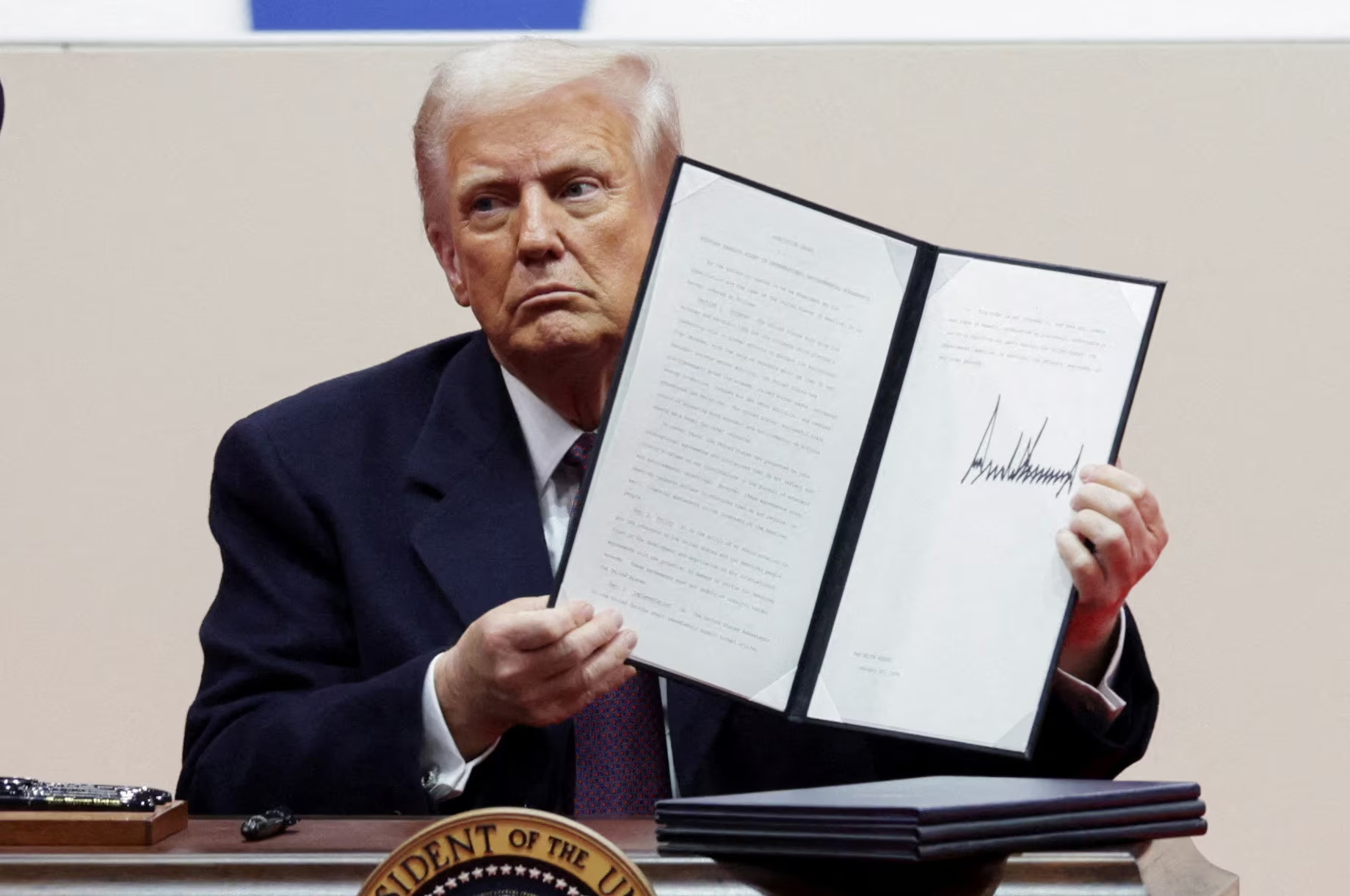The International Monetary Fund (IMF) has sharply downgraded growth forecasts for the United States and other major economies, warning that President Donald Trump’s unpredictable economic policies are shaking confidence and destabilizing global markets.
What’s happening?
The IMF says the world economy is already feeling the effects of declining business and consumer confidence. Spending and investment are falling as the U.S. pursues major shifts in trade and economic policy. Supply chains are being disrupted, inflation is rising due to tariffs, and financial markets are experiencing significant volatility.
Are we heading into a global recession?
Not yet — but the risk is growing. The IMF projects a sharp slowdown in global growth for 2025 and 2026, but it has stopped short of predicting a full-blown recession. However, it warns that the chance of a global recession has jumped from 17% to 30%, and the risk of a U.S. recession now stands at 40%.
Which countries are being hit hardest?
The advanced economies are facing the steepest downgrades.
- U.S. growth for 2025 is now forecast at just 1.8% — a 0.5% cut.
- The Eurozone is projected to grow by only 0.8%, with Germany expected to see zero growth.
- Japan’s growth forecast has dropped to 0.6%.
- The UK’s growth projection was slashed to 1.1%, a downgrade that could mean more tax hikes or spending cuts.
In contrast, some developing countries are still expected to post stronger numbers. India, for example, is projected to grow by 6.2% in 2025. However, China’s growth forecast has been cut sharply to 4% due to U.S. tariffs.
Why are Trump’s policies causing so much turmoil?
President Trump’s strategy — massive tariff increases aimed at countries he accuses of “ripping off America” — has introduced major uncertainty into the global economy. His administration has swung between different goals: using tariffs to fund tax cuts, force open foreign markets, or relocate manufacturing to the U.S. This inconsistency has destabilized trade, investment decisions, and market sentiment.
Tariffs raise the price of imported goods, feeding inflation. If inflation worsens, central banks may be forced to hike interest rates — something Trump opposes but may become unavoidable.
How are financial markets reacting?
Markets have been rattled. The U.S. stock market has fallen nearly 15% since Trump unveiled his tariff plans, wiping out over $4 trillion in shareholder value. Foreign investors are pulling away from U.S. Treasury bonds, pushing up interest rates for government debt and unsettling financial institutions. Meanwhile, a falling U.S. dollar could raise import costs and fuel further inflation.
What’s the big picture?
The IMF warns that the era of rapid globalization — which fueled decades of global economic growth — may be coming to an end. Just as countries turned inward after World War I, leading to the Great Depression, today’s shifts could divide the world into rival economic blocs centered around the U.S., Europe, and China.
Although the 2008 financial crisis was contained through swift global cooperation, the IMF fears that the current climate of distrust and erratic policymaking could make future crises harder to control.
The world isn’t in a recession yet. But unless stability returns to U.S. trade and economic policy, the chances of a global downturn are rising — and the consequences could be long-lasting.






